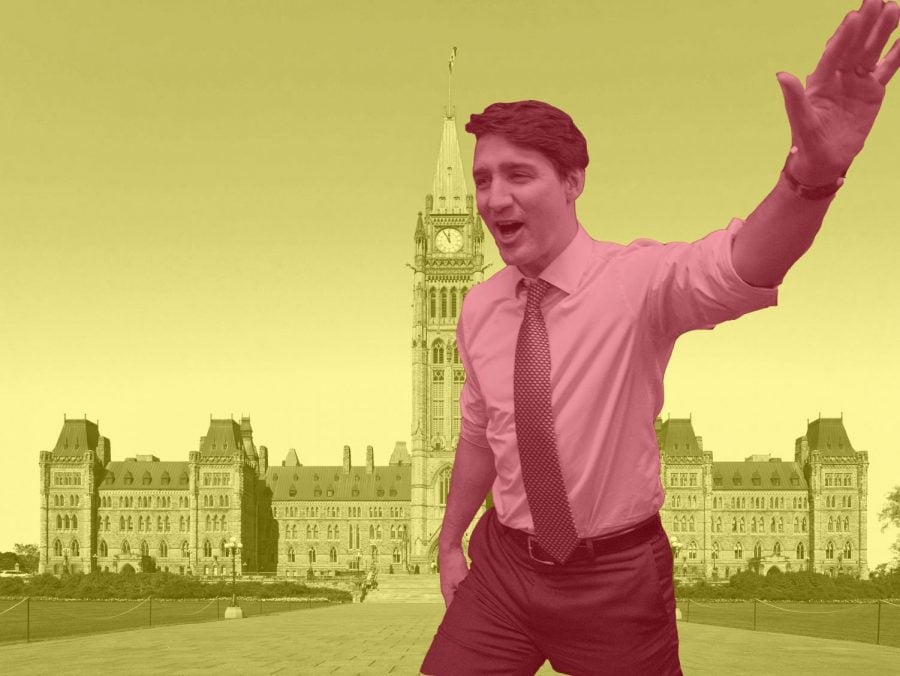Trudeau in trouble?
SNC-Lavalin corruption scandal rocks Parliament Hill, leading some to wonder if the Canadian prime minister will pay at the polls in October
Is Justin Trudeau’s job in jeopardy? The Canadian prime minister’s Liberal government has been at the center of a scandal related to corruption charges against Quebec-based mining and construction giant SNC-Lavalin, and recent polling has shown the Liberals lagging behind the opposition Conservatives for the first time in nearly a year.
“I think this affair resonates so much with many Canadians in part because of the way in which Trudeau depicted himself in 2015 — i.e. someone who would do politics differently,” said Daniel Béland, a political science professor at McGill University in Montreal, Quebec. “The regional dimension is also important: Outside of Quebec, Trudeau is sometimes criticized as someone who focuses too much on his home province of Quebec at the expense of other parts of the country.”
The scandal began last month, when on Feb. 7 the Globe and Mail newspaper cited unnamed sources who claimed that Canada’s former attorney general and justice minister, Jody Wilson-Raybould, faced inappropriate pressure to intervene on behalf of SNC-Lavalin. The company is facing corruption and fraud charges dating back to 2001-2011, when it is alleged to have paid millions of dollars in bribes to Libyan officials under the Gaddafi regime in order to secure business contracts there. SNC currently employs some 8,700 people in Canada, and a conviction could bar the company from bidding on federal government contracts for 10 years.
SNC wanted the case to be resolved with a “deferred prosecution agreement” (DPA), which would drop all criminal charges against them in favor of paying a fine. The company had previously lobbied the government to include DPA provisions in an amendment to Canada’s Criminal Code.
Wilson-Raybould resigned from her cabinet post as veterans-affairs minister on Feb. 12; she had been moved to the position amid a January cabinet re-shuffle. Principal secretary Gerald Butts, widely seen as the prime minister’s right-hand man, resigned on Feb. 18; he was among 11 people Wilson-Raybould alleges pressured her to intervene in the SNC matter. President of the Treasury Board Jane Philpott resigned March 4, saying in a statement that she had “lost confidence in how the government has dealt with this matter and in how it has responded to the issues raised.”
In testimony before the House of Commons justice committee, Wilson-Raybould and Butts gave opposing narratives about conversations and meetings that occurred leading up to Wilson-Raybould’s resignation. She said that she had been “hounded” by members of Trudeau’s inner circle to change her mind about prosecuting SNC, while Butts denied that there had been a coordinated effort to do so. He said he and others did encourage her to seek outside legal counsel before making a decision in the case because of the number of jobs at stake.
“I believe that if any minister is made aware of something they think is this wrong, I believe they have an obligation to inform the prime minister soon after they become aware of it,” he told the committee.
Trudeau has taken a similar tack.
“If she felt she had received pressure, it was her obligation — her responsibility — to come to talk to me, and she did not do that,” he told members of the media on Feb. 13.
On March 7, however, he acknowledged that there had been an “erosion of trust” between him and Wilson-Raybould.
“I was not aware of that erosion of trust. As prime minister and leader of the federal ministry, I should have been,” he said.
Trudeau’s reputation has been damaged “inside the beltway, among elites,” according to Concordia University political science professor Harold Chorney. (Chorney is also a member of the Liberal party).
“Outside the beltway [his reputation] remains to be seen,” he said. “That will only be known at the time of the next elections in October, when the reputation of the prime minister might possibly be tarnished in the elections to the extent that he loses his majority.
“Look at President Trump,” he added. “Inside the beltway and among elites and the media he’s condemned. But his base still seems to support him.”
There is no impeachment process in Canada, whose government utilizes a Westminster system similar to the British parliamentary system. Trudeau is unlikely to face a no-confidence vote because his Liberal Party currently has the most seats in the House of Commons, and they are unlikely to vote against him.
“I actually think in terms of him being ousted, I think [there’s] very little chance because he’s the leader of the party. Except for Ms. Wilson-Raybould and Jane Philpott, his cabinet has remained intact, and the caucus has stood behind him,” said Jennifer Quaid, a law professor at the University of Ottawa.
Quaid said it’s unlikely Trudeau will be convicted of a crime, as it would be extremely difficult to prove there was an intent to subvert the course of justice. She said his real test will be the upcoming elections.
“We’re going to see if he’s going to keep his job then,” she said. “If he loses the election, then clearly the Liberals are pretty good at eating their young and pitching out leaders who lose.
“But at the end of the day, to quote someone who’s been quoted more than once, it’s about the economy. At the end of the day people are really going to care about their economic well-being and this election is going to be fought on that — like most elections.”







